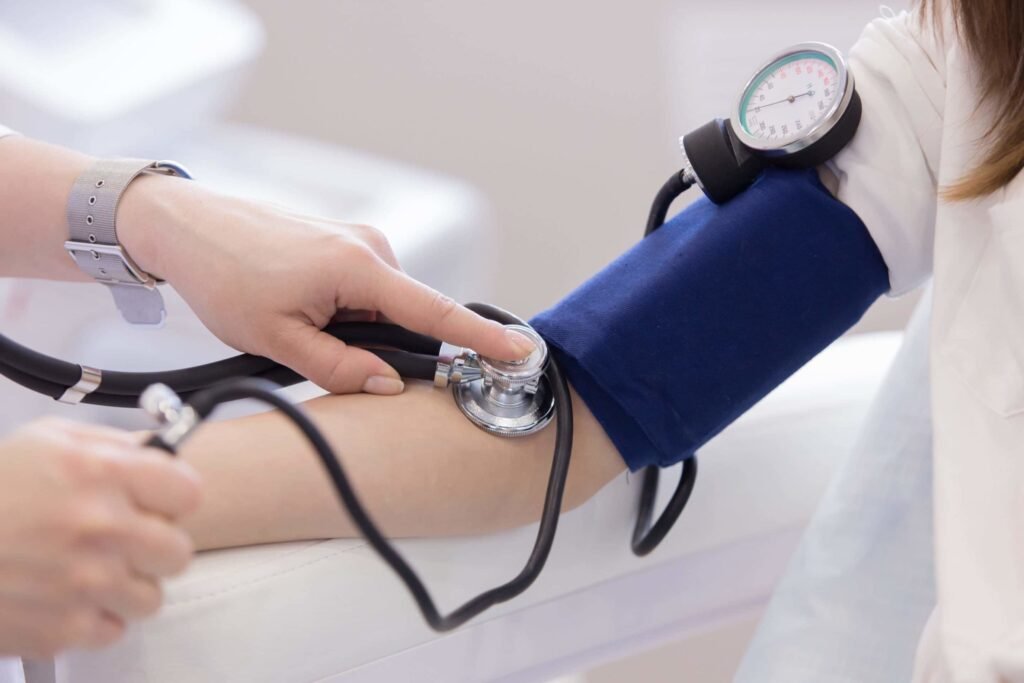
High blood pressure, also known as hypertension, is a prevalent health concern affecting millions worldwide. It occurs when the force of blood against artery walls remains consistently elevated. Let’s delve into the essential aspects of high blood pressure, including its symptoms, causes, and first aid measures.
Causes of High Blood Pressure
- Primary Hypertension:
- Cause: When the exact reason for high blood pressure cannot be pinpointed, it is termed primary or essential hypertension.
- Common Factors:
- Lack of Physical Activity: Sedentary lifestyles contribute to elevated blood pressure.
- Unhealthy Eating Patterns: Excessive sodium intake and poor dietary choices play a role.
- High Alcohol Consumption: Excessive alcohol can lead to hypertension.
- Secondary Hypertension:
- Cause: Secondary hypertension arises due to underlying conditions.
- Triggers:
- Obstructive Sleep Apnea: Breathing difficulties during sleep impact blood pressure.
- Illegal Drug Use: Certain substances can elevate blood pressure.
- Adrenal Gland Problems: Hormonal imbalances affect blood pressure.
- Medication Side Effects: Some drugs may lead to hypertension.
- Kidney Disease: Impaired kidney function contributes.
- Congenital Heart Defects: Structural heart issues can cause elevated blood pressure.

Symptoms of High Blood Pressure
- Often Silent: High blood pressure may persist without noticeable symptoms.
- Possible Signs:
- Nosebleeds: Occasional nosebleeds can be linked to hypertension.
- Shortness of Breath: Difficulty breathing may occur.
- Headaches: Persistent headaches could be a subtle indicator.
First Aid Measures
- Monitor Regularly:
- Home Blood Pressure Monitoring: Regularly check your blood pressure at home using a reliable monitor.
- Awareness: Understand your baseline readings and recognize spikes.
- Seek Medical Attention:
- Emergency Situation: If blood pressure exceeds 180/120 mm Hg, its a hypertensive emergency.
- Immediate Action: Call for medical help promptly.
- Lifestyle Changes:
- Diet: Reduce sodium intake, opt for whole foods, and maintain a balanced diet.
- Physical Activity: Regular exercise helps manage blood pressure.
- Limit Alcohol: Moderation is key.
- Stress Management: Practice relaxation techniques.
- Medications:
- Prescribed by a Doctor: Medications may be necessary based on individual circumstances.
Remember, early detection and proactive management are crucial in preventing complications related to high blood pressure. Prioritize your health, and seek professional guidance when needed.
 thepenaschamber.com
thepenaschamber.com
